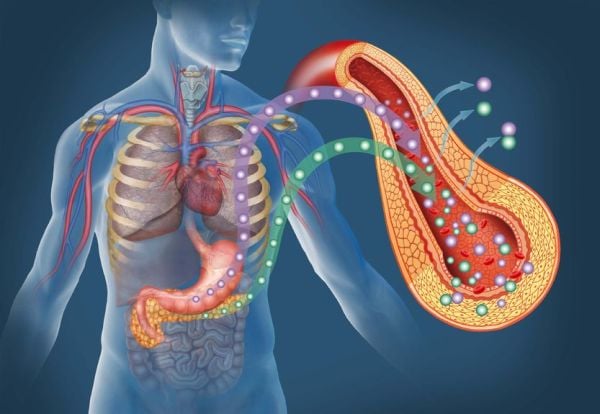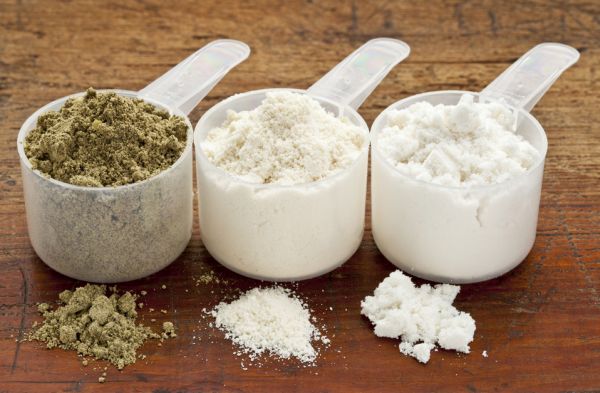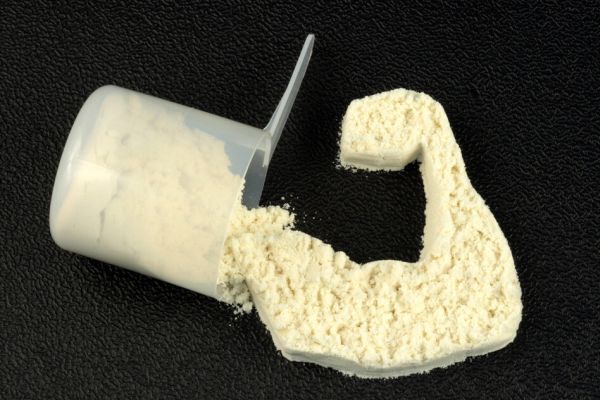I used to eat protein every 2 to 3 hours.
Every day. Like clockwork.
And if I missed a “feeding,” I swore I could feel my muscles withering away, begging for sustenance.
Why, you wonder?
Because I had read in a bodybuilding magazine that the body can only absorb about 30 to 40 grams of protein per meal.
Anything over that threshold would simply be converted into glucose and burned.
To make matters worse, I had also read that I should be eating about 300 to 400 grams of protein per day.
Well, as you can imagine, eating 40 grams of protein 8 times per day was…a struggle.
Why did I believe all this, you now wonder?
…
I was a bit of a muppet, I guess.
BUT!
Those times have passed and I no longer live on Sesame Street.
And I want to tell you what I now know about protein absorption
You see, when it comes to absorption thresholds, there are many numbers floating around out there.
Some “experts” claim the same range I read about years ago. Some say it’s less and some say it’s more.
So wait…
They’re trying to say that the bodies of both NFL linebackers and horse jockeys deal with protein in more or less the same ways?
That genetics, lifestyle, and body composition don’t dramatically influence protein metabolism?
This just defies common sense.
Furthermore, they’re saying that eating large amounts of protein just 2 to 3 times per day will result in “protein loss” and even deficiencies?
How, then, did the human species survive the hunter-gatherer days, I wonder?
Well, in this article, we’re going to cut through the flimflam.
By the end, you’re going to know how much protein you can “safely” eat in one each and why, and I think you’re going to be happy with the news.
So let’s get to it, starting with what actually happens when you eat protein.
- The Science of Protein Absorption
- The Problem With Protein Absorption "Ceilings"
- The Bottom Line on Protein Absorption
Table of Contents
+The Science of Protein Absorption

When you eat protein, your stomach uses its acid and enzymes to break it down into its building blocks, amino acids.
These molecules are transported into the bloodstream by special cells that line the small intestine, and are then delivered to various parts of the body.
Your small intestine only has so many transporter cells, which limits the amount of amino acids that can be infused into your blood every hour.
This is really what we’re talking about with “protein absorption”:
How quickly our small intestine can absorb amino acids into our blood.
And this happens at different speeds for different types of protein.
According to one review, whey clocks in at 8 to 10 grams absorbed per hour, casein at ~6.1 g/hr, soy at ~3.9 g/hr, and cooked egg at ~2.9 g/hr.
These numbers aren’t completely accurate due to the complexities involved in measuring protein absorption, but they lend insight nonetheless.
Certain proteins are absorbed very slowly and others are processed fairly quickly.
You should also know that food substances don’t move uniformly through the digestive tract and they don’t necessarily leave sections in the same order that they arrived in.
For instance, the presence of protein in the stomach stimulates the production of a hormone that delays “gastric emptying” (the emptying of the food from the stomach).
This slows down intestinal contractions and thus how quickly the food moves through the small intestine, where nutrients are absorbed.
This is one of the ways your body “buys the time” it needs to absorb the protein you eat.
Carbohydrates and fats can move through your small intestine and be fully absorbed while the protein is still being worked on.
Once the amino acids arrive in the blood, your body does various things with them including tissue growth and repair.
It can even temporarily store excess amino acids in muscle for near-future needs.
If there are still amino acids in the blood after doing all of the above, your body can convert them into glucose to fuel your brain and other cells.
So, that’s how your body processes the protein you eat.
Let’s move on to the heart of the matter.
The Problem With Protein Absorption “Ceilings”

Claims that the body can only absorb so much protein in one sitting are usually based on one of the following ideas (or both):
“All foods move through the small intestine in 2 to 3 hours.”
If this were true…if your body was in a race against time to process the food you eat…then the matter would be pretty open and shut.
Even if you ate a very fast-absorbing protein like whey, you could only absorb 25 to 30 grams before it would be “too late.”
Well, as you now know, that’s just not how it works.
Your body is able to regulate the speed at which protein moves through the small intestines to ensure it can absorb all of the available amino acids.
This isn’t just theory, either.
For example, a study conducted by scientists the National Human Nutrition Research Center (France) had 16 young women eat 79% of the day’s protein (about 54 grams) in one meal or four meals over the course of 14 days.
Researchers found no difference between the groups in terms of protein metabolism.
Furthermore, if we look at the amount of protein in the high-protein meals relative to the average body weight of the participants, it comes out to about 1.17 grams of protein per kilogram of body weight.
Apply that to a man weighing 80 kilograms (176 pounds), and you get about 94 grams of protein in each meal.
While this isn’t definitive scientific proof, it’s food for thought.
Research on the style of dieting known as intermittent fasting is also relevant.
This style of dieting has people fasting for extended periods, followed by anywhere from 2 to 8-hour “feeding windows” and it’s now well established that it doesn’t result in muscle loss.
(Oh, and by the way, if you’d like to know if intermittent fasting is right for you or if another diet might be a better fit for your circumstances and goals, then take the Legion Diet Quiz! In less than a minute, it’ll tell you exactly what diet is right for you. Click here to check it out.)
For example, this IF study found that eating the entire days’ worth of protein in a 4-hour window (followed by 20 hours of fasting) didn’t negatively impact muscle preservation.
Similar results have been seen in several other studies as well.
“This one study showed that 20 grams of protein stimulates maximum muscle growth.”

A study commonly cited as proof of limited protein absorption found that 20 grams of post-workout protein stimulated maximum muscle protein synthesis in young men.
That is, eating more than 20 grams of protein after working out did nothing more in terms of stimulating muscle growth.
The most obvious flaw in this argument is you can’t use studies on the anabolic response to protein consumption to extrapolate ideas about how much we can absorb in one sitting.
Acute anabolic responses to single meals containing protein just don’t give us the whole picture.
Protein absorption relates to the infusion of amino acids into the bloodstream over extended periods of time whereas protein synthesis relates to the use of those amino acids to build tissues.
Amino acids are the building blocks and protein synthesis is the process of building.
What this study really tells us is that, ideally, each time we eat protein, we would eat at least 20 grams.
Remember, though, that the study found that 20 grams of post-workout protein stimulated maximum protein synthesis in young men.
Don’t assume that this 20-gram number applies to everyone because protein metabolism is affected by several things:
- How much muscle you have. The more you have, the more amino acids your body needs to maintain your musculature, and the more places your body can store surpluses.
- How active you are. The more you move around, the more protein your body needs.
- How old you are. The older you get, the more protein your body needs to maintain its muscle.
- Your hormones. Elevated levels of growth hormone and insulin-like growth factor 1 (IGF-1) stimulate muscle synthesis. If your body has high levels of these anabolic hormones, it will utilize protein better than someone that has low levels.
On the other hand, elevated levels of cortisol reduces protein synthesis and accelerates the process whereby the body breaks down amino acids into glucose (gluconeogenesis).
This hinders protein metabolism, of course.
So, while 20 grams of protein might be enough to maximally spike protein synthesis levels, this won’t hold true for everyone.
Many people will need more protein to see the same effects.
Personally I keep my protein at or above 30 to 40 grams in most meals.
The Bottom Line on Protein Absorption

As you can see, it’s impractical (and misleading) to put a cap on how much protein your body can absorb in one meal.
Rest assured it’s a hell of a lot more than the 20 to 30 grams that some people claim, too.
You probably also noticed that “protein timing” isn’t as important as some people think, either.
That is, you don’t have to eat protein every 2 to 3 hours to maximize muscle growth or avoid “going catabolic.”
Eating sufficient protein every day is what matters most, not the frequency of your feedings.
While it’s smart to have a good amount of protein before and after training, break up the rest of your daily needs however you want and let your body take care of the rest.
Personally, I like to eat every few hours, but if you prefer fewer, larger meals, then don’t be afraid to load up on the protein when you eat.
What are your thoughts on protein absorption? Have anything else to add? Let me know in the comments below!
Scientific References +
- Christiansen JJ, Djurhuus CB, Gravholt CH, et al. Effects of cortisol on carbohydrate, lipid, and protein metabolism: Studies of acute cortisol withdrawal in adrenocortical failure. J Clin Endocrinol Metab. 2007;92(9):3553-3559. doi:10.1210/jc.2007-0445
- Umpleby AM, Russell-Jones DL. The hormonal control of protein metabolism. Baillieres Clin Endocrinol Metab. 1996;10(4):551-570. http://www.ncbi.nlm.nih.gov/pubmed/9022951. Accessed September 16, 2019.
- Campbell WW, Trappe TA, Wolfe RR, Evans WJ. The recommended dietary allowance for protein may not be adequate for older people to maintain skeletal muscle. J Gerontol A Biol Sci Med Sci. 2001;56(6):M373-80. doi:10.1093/gerona/56.6.m373
- Lemon PW. Beyond the zone: protein needs of active individuals. J Am Coll Nutr. 2000;19(5 Suppl):513S-521S. doi:10.1080/07315724.2000.10718974
- Varady KA. Intermittent versus daily calorie restriction: Which diet regimen is more effective for weight loss? Obes Rev. 2011;12(7). doi:10.1111/j.1467-789X.2011.00873.x
- Stote KS, Baer DJ, Spears K, et al. and the Clinical Research Branch (PS and LF), and the Laboratories of Cardiovascular Science (SSN). 2009;85(4):981-988. doi:10.1093/ajcn/85.4.981
- Keogh JB, Pedersen E, Petersen KS, Clifton PM. Effects of intermittent compared to continuous energy restriction on short-term weight loss and long-term weight loss maintenance. Clin Obes. 2014;4(3):150-156. doi:10.1111/cob.12052
- Soeters MR, Lammers NM, Dubbelhuis PF, et al. Intermittent fasting does not affect whole-body glucose, lipid, or protein metabolism. Am J Clin Nutr. 2009;90(5):1244-1251. doi:10.3945/ajcn.2008.27327
- Arnal MA, Mosoni L, Boirie Y, et al. Protein feeding pattern does not affect protein retention in young women. J Nutr. 2000;130(7):1700-1704. doi:10.1093/jn/130.7.1700
- Dietary Reference Intakes for Energy, Carbohydrate, Fiber, Fat, Fatty Acids, Cholesterol, Protein, and Amino Acids (Macronutrients). National Academies Press; 2005. doi:10.17226/10490
- Storr M, Sattler D, Hahn A, Schusdziarra V, Allescher HD. Endogenous CCK depresses contractile activity within the ascending myenteric reflex pathway of rat ileum. Neuropharmacology. 2003;44(4):524-532. doi:10.1016/s0028-3908(03)00028-5
- Bilsborough S, Mann N. A review of issues of dietary protein intake in humans. Int J Sport Nutr Exerc Metab. 2006;16(2):129-152. http://www.ncbi.nlm.nih.gov/pubmed/16779921. Accessed September 16, 2019.










